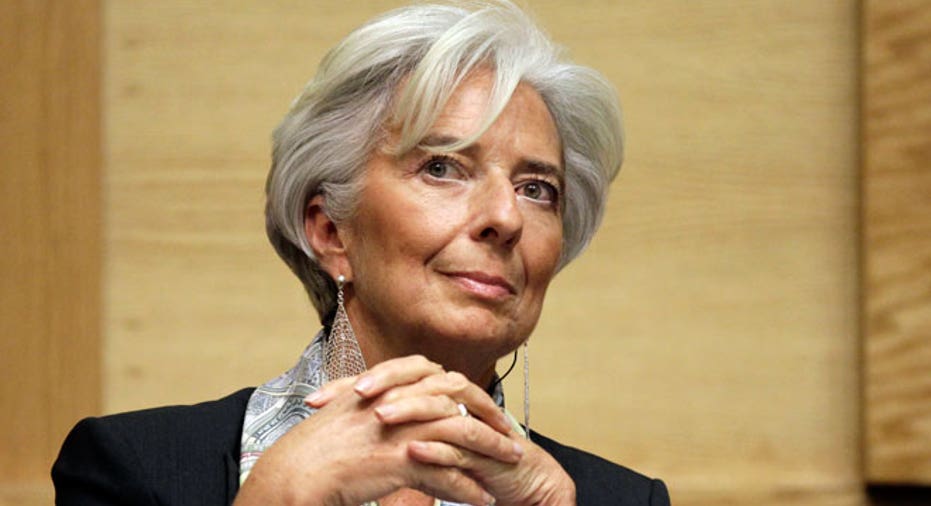IMF Chief: Ukraine Will Need More Bailout Funding

Ukraine will need additional bailout financing from outside the International Monetary Fund to keep the war-torn economy afloat, the head of the IMF said Thursday.
The cost of the conflict with Russia-backed separatists has changed the country's cash needs since the IMF originally designed a $30 billion international bailout program in April, of which the fund pledged to cover $17 billion.
"Additional funding will have to come" after the IMF reviews the current bailout strategy in December, IMF Managing Director Christine Lagarde said at a Bretton Woods Committee event on the sidelines of the annual IMF and World Bank meetings of finance ministers and central bankers.
"To assume that the additional funding will have to come from the IMF, I think is rather far-fetched," she said. "If the economy has to be restored and stability maintained, money will have to come from multiple sources."
The IMF chief's comments acknowledge what many economist and analysts outside the fund have been warning for some time. The IMF's latest forecast still projects the economy expanding next year, albeit at a sluggish rate, even though the World Bank said the country will likely be in a deep recession until at least 2016.
The IMF says the April bailout was predicated on the expectation that the conflict in eastern Ukraine would halt in early autumn.
"Can you say that the hostilities have stopped? Can you say that there is a cease-fire? Can you say from an economic point of view and fiscal point of view that the situation has been restored? No," Ms. Lagarde said.
Major Ukrainian manufacturing infrastructure, much of it in the war-ravaged east, is damaged or not operating. Kiev's budget is suffering from weak revenues and rising military costs. And the country's devalued currency is still wreaking havoc on the financial system.
"The economy is in quite a difficult situation," Ukraine's ambassador in Washington, Olexander Motsyk, told reporters on Thursday, declining to say how much financing was needed.
"The policy of Russia is to destroy everything in Donbas," he said, referring to the Don River basin in Ukraine, where Western nations say Russian forces helped a pro-Moscow insurgency fight off Ukraine's military.
"The policy is to ruin in Ukraine and say Ukraine is unsuccessful," he said, saying that some 4,500 buildings in eastern Ukraine have been destroyed. Russia has denied sending its forces into Ukraine.
The fighting has also hurt the region's production and shipment of coal used in electricity generation and the steel industry.
The IMF said in its review of the bailout, published last month, that the country's financing needs could rise by $19 billion if the civil war continues.
But economists outside the IMF say the funding requirement could be larger, and warn any overhaul of the IMF bailout program must include some sort of debt restructuring to ensure the country can return to economic health. The national elections later this month could provide the opportunity for a bailout overhaul, giving the lawmakers a chance to enact another round of politically tough economic policies that would help Kiev get a better grip on state finances. Those efforts could be reciprocated by additional international financing help.



















